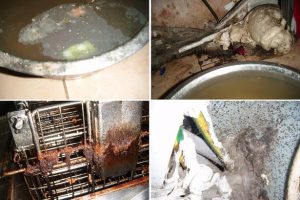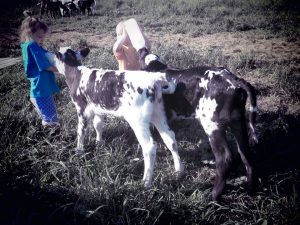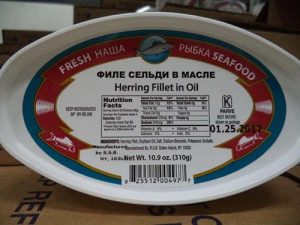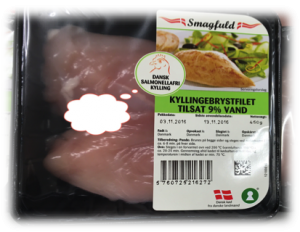Environmental health officers were left stunned at the filthy state of a shop which was inspected after a customer complained they had seen a rat running across the counter.
 They found mouse dropping throughout the premises – including on a chopping board and in open sacks of flour – in addition to filthy kitchen equipment and old food stuck to surfaces.
They found mouse dropping throughout the premises – including on a chopping board and in open sacks of flour – in addition to filthy kitchen equipment and old food stuck to surfaces.
Raw chicken had been washed in a dirty sink and then dipped in dirty water, and blood and food waste, including old pizza dough, was left lying around.
Conditions were so dire, officers ordered staff to close the premises immediately during their visit on November 5 last year, the Manchester Evening News reports.
Shahzad Akthar, the owner of the Central takeaway, on Cromwell Road in Salford, Greater Manchester, was hit with a bill of nearly £3,000 after being hauled before the courts .
He was fined £1,080 and ordered to pay costs of £1,627 and a victim surcharge of £100 and being found guilty of four food safety and hygiene offences at Manchester and Salford Magistrates’ Court.
Inspectors found a ‘clear and active’ mouse infestation with significant amounts of droppings throughout the premises, made worse by large amounts of food on the floor and gaps in walls and doors, giving mice access to food.
The council said it was clear the takeaway had not been properly cleaned for some time.
Officers found rotting food on surfaces and equipment, grease and old food stuck to shelves near the kebab machine, and old grub on the inside of fridges.
The ice cream server and equipment were so dirty there was scum on the surface of the liquid.
A raw meat chopping board was on top of the salad chopping board, and both boards were kept behind a sink in a pool of filthy water.
Staff said they used a shower cleaning product to clean work surfaces and had little knowledge of how to store food at the correct temperatures.











